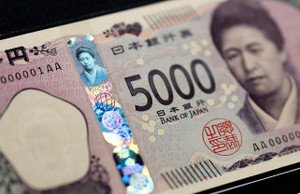Hermes Senior Economist Silvia Dall’Angelo comments on the current political crisis in Italy
Published by Gbaf News
Posted on May 31, 2018
4 min readLast updated: January 21, 2026

Published by Gbaf News
Posted on May 31, 2018
4 min readLast updated: January 21, 2026

Silvia Dall’Angelo, Senior Economist: “Almost three months after the March general elections, Italy has come back into the spotlight. Negotiations to form a populist government unravelled over the prospects of a euro-sceptic finance minister, sinking the country into political turmoil. Financial markets woke up to the perils of populism in its European expression.”
“The end-game for the current political stall is likely to be new elections in September or October, following a summer with an unpopular technocratic government acting as caretaker. However, unexpected twists and turns cannot be ruled out, in light of recent surprises, and given the unpredictability of the characters involved. Snap elections taking place as early as late July or a reopening of negotiations for a populist government are also possible evolutions. Whatever the short-term developments, it feels like a new electoral campaign is already under way. Populist parties have escalated their anti-establishment rhetoric, and recent polls suggest that the strategy has paid off, in particular, for the League.
“In the coming weeks, financial markets are likely to focus on two main topics: the sustainability of the large public debt (amounting to more than 130% of GDP) amidst promised fiscal largesse, and, more crucially, the question of the euro membership. It is unlikely populist parties will harp on against the single currency (which still enjoys the support by a majority of the public opinion), but the genie is now out of the bottle and financial markets will monitor denomination risk closely.
“The Italian situation poses challenges domestically and for the European project at large. The next Italian government will need to find a credible set of policies to respond to the malaise expressed by the electorate, still facing a slow and uneven recovery following two recessions in the last ten years. European leaders will have to take the populist threat more seriously and work to fix the shortcomings of the European project, providing a stronger political and fiscal underpinning to the single currency.”
Silvia Dall’Angelo, Senior Economist: “Almost three months after the March general elections, Italy has come back into the spotlight. Negotiations to form a populist government unravelled over the prospects of a euro-sceptic finance minister, sinking the country into political turmoil. Financial markets woke up to the perils of populism in its European expression.”
“The end-game for the current political stall is likely to be new elections in September or October, following a summer with an unpopular technocratic government acting as caretaker. However, unexpected twists and turns cannot be ruled out, in light of recent surprises, and given the unpredictability of the characters involved. Snap elections taking place as early as late July or a reopening of negotiations for a populist government are also possible evolutions. Whatever the short-term developments, it feels like a new electoral campaign is already under way. Populist parties have escalated their anti-establishment rhetoric, and recent polls suggest that the strategy has paid off, in particular, for the League.
“In the coming weeks, financial markets are likely to focus on two main topics: the sustainability of the large public debt (amounting to more than 130% of GDP) amidst promised fiscal largesse, and, more crucially, the question of the euro membership. It is unlikely populist parties will harp on against the single currency (which still enjoys the support by a majority of the public opinion), but the genie is now out of the bottle and financial markets will monitor denomination risk closely.
“The Italian situation poses challenges domestically and for the European project at large. The next Italian government will need to find a credible set of policies to respond to the malaise expressed by the electorate, still facing a slow and uneven recovery following two recessions in the last ten years. European leaders will have to take the populist threat more seriously and work to fix the shortcomings of the European project, providing a stronger political and fiscal underpinning to the single currency.”
Explore more articles in the Top Stories category











